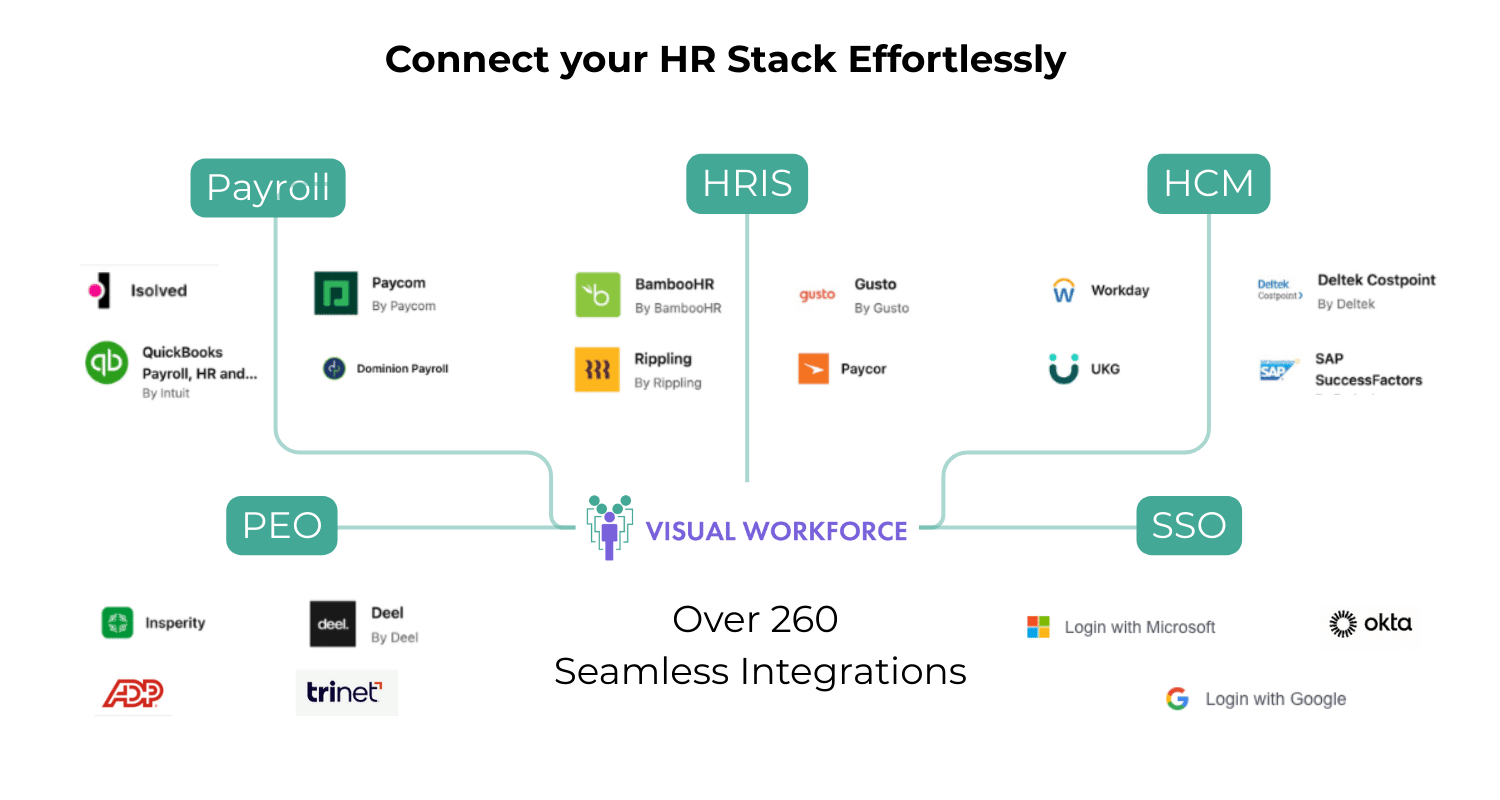Why Your Company Needs A Standard Skills Vocabulary
In today's rapidly evolving business landscape, effective communication and collaboration are crucial for success. Just as accountants rely on standardized language to communicate financial health across the organization, a common skills vocabulary is essential for clear communication about employee capabilities and organizational needs.
The Shift Towards Skills Based Organization
According to Deloitte research, organizations are increasingly adopting “skills based organization" – a new operating model that decouples work from jobs and focuses on individuals' skills and capabilities. This shift recognizes that skills are becoming the new currency of business, enabling employees to be seen as whole individuals with deployable skills rather than being defined solely by their job titles.
What Does a Common Skills Vocabulary Look Like?
Typically, companies that have successfully adopted a common skills vocabulary have a organized the skills that the organization requires to conduct regular business. Managers can use the skills to create job descriptions, performance reviews, RFP proposals, training plans, and much more.
Here are the benefits of having a common skills vocabulary.
Benefits of a Common Skills Vocabulary
Implementing a standard skills vocabulary across your organization offers numerous advantages:
Improved Manager-Employee Communication
Develops trust through consistency in reporting and performance reviews
Enables employees to understand role expectations and measure personal growth
Enhanced Manager-to-Manager Communication
Streamlines job descriptions, training plans, and RFP proposals
Eliminates the need for back-and-forth conversations on skills
Better Executive Reporting
Improves communication between managers and executives
Ensures consistent terminology across organizational levels
Implementing a Skills Vocabulary
To successfully adopt a common skills vocabulary:
Adopt a Skills Management Tool
Invest in a platform that organizes skills into a standardized library
Enables easy skill selection for job descriptions, training plans, etc.
Leverage Existing Job Descriptions
Analyze current job postings to identify common required skills
Use this foundation to build your skills taxonomy
Start Small and Be Patient
Begin with a lean approach, focusing on essential skills
Allow time for adoption and refinement of the new language
Statistics Supporting Skills Based Approaches
63% of business and HR executives say their organizations' executives are aligned on the importance of skills in workforce decisions
61% of workers and 60% of business executives believe highly skilled workers should be easily discovered and rewarded
Only 10% of HR executives report effectively classifying and organizing skills into taxonomies
Skills Taxonomy: A Comprehensive Approach to Skills Framework
Adopt a robust skills taxonomy.
The taxonomy focuses on three main areas:
Specialized Skills
Common Skills
Software Skills
These categories are further broken down into 30 skill categories and numerous sub-categories. Some of the skill categories include Administration, Agriculture, Horticulture, and Landscaping, Analysis, Architecture and Construction, Business, Customer and Client Support, Design, Economics, Policy, and Social Studies, Education and Training, Energy and Utilities, Engineering, Environment, Finance, Health Care, Hospitality and Food Services, Human Resources, Information Technology, Law, Regulation, and Compliance, Maintenance, Repair, and Facility Services, Manufacturing and Production, Marketing and Public Relations, Media and Communications, Performing Arts, Sports, and Recreation, Physical and Inherent Abilities, Property and Real Estate, Public Safety and National Security, Sales, Science and Research, Social and Human Services, Transportation, Supply Chain, and Logistics.
Best Practices for Skills Framework
Keep it Simple
Focus on essential skills rather than creating exhaustive lists
Look for ready-to-use, actively curated skills that are relevant to your business. This approach ensures that you have access to a granular yet broad range of skills, allowing for accurate assessment of employee capabilities and organizational needs
Make Skills Portable
Ensure verified skills data can be transferred between organizations
Enables workers to easily move between roles and projects
Align Business and HR Executives
Foster shared understanding of skills' importance in workforce decisions
Helps drive consistent application of skills based approaches across the organization
Challenges in Implementing a Common Skills Vocabulary
Despite the benefits, organizations often face challenges in adopting a standardized skills vocabulary:
Resistance to Change
Employees may resist new terminology and processes
Managers might feel overwhelmed by the task of adopting a new system
Complexity of Skills Assessment
Determining the level of proficiency for each skill can be challenging
Ensuring consistency across assessments is crucial but difficult to maintain
Keeping Up with Rapidly Changing Skill Requirements
New technologies and business needs emerge constantly
Maintaining relevance of skills taxonomy requires ongoing effort
Strategies for Overcoming Challenges
Communicate Clearly and Consistently
Provide training sessions for employees at all levels
Ensure managers understand the importance and benefits of the new system
Start Small and Iterate
Begin with a pilot program in one department or team
Gather feedback and continuously improve the system
Leverage Technology
Invest in robust skills management software
Automate repetitive tasks to reduce manual work
Make It Meaningful to Employees
Connect skills development to career growth opportunities
Show how skills contribute to organizational success
Measuring Success of a Common Skills Vocabulary
To determine whether your organization has successfully implemented a common skills vocabulary, consider these metrics:
Adoption Rate
Track the percentage of employees actively using the skills vocabulary
Monitor manager adoption rates for job descriptions and performance reviews
Consistency in Communication
Analyze reports and communications before and after implementation
Measure improvements in clarity and efficiency of communication
Skill Development
Track employee progress in developing new skills, advancing their proficiency with existing skills and the organization’s critical skills
Talent Mobility
Assess internal mobility
Evaluate the effectiveness of succession planning
By implementing a standardized skills vocabulary, organizations can significantly improve communication, enhance decision-making, and better align their workforce with evolving business needs. As the business landscape continues to shift, embracing a common language for skills will become increasingly crucial for organizational success.
By adopting a comprehensive skills taxonomy, organizations can ensure they have access to a granular yet broad range of skills, allowing them to accurately assess employee capabilities and organizational needs. This approach enables better talent management, improved workforce planning, and more effective skill development strategies.
Statistics support the effectiveness of skills based approaches:
Organizations adopting skills based models see a 20% improvement in talent acquisition efficiency
Companies implementing skills frameworks reduce time-to-hire for skilled positions by up to 30%.
Employees working in a skills based organization report higher job satisfaction rates compared to traditional hierarchical structures.
By investing in a standardized skills vocabulary, organizations can create a culture of continuous learning and development, leading to increased competitiveness in the rapidly changing business landscape. As the global economy shifts towards knowledge-based industries, the importance of a common language for skills will only continue to grow.
Ready to enhance your talent management strategy? Start leveraging skills data today with Visual Workforce.
Learn how Visual Workforce helps you automate the discovery and optimization of the skills of your people, teams, and projects to help you cross the talent management chasm.








